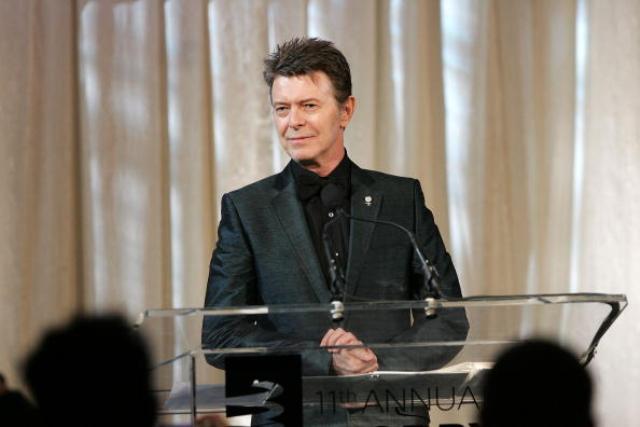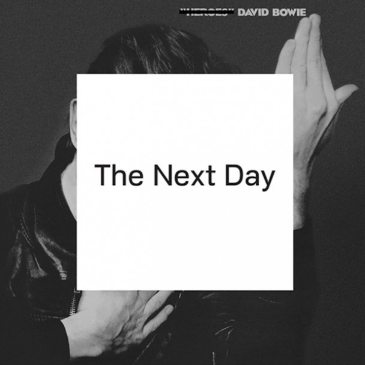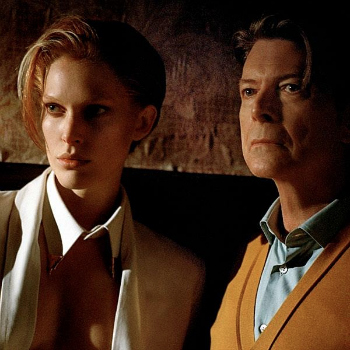David Bowie's 'The Next Day' Shows An Artist In Full Bloom, Not A Nostalgia Act
By Tankboy in Arts & Entertainment on Mar 12, 2013 6:00PM

Photo credit: Bryan Bedder/Getty Images
 It's been just under 10 years since David Bowie's last proper studio release Reality, and two years since any new music from the man — in the form of the "lost" album Toy leaked online — so most had figured the Thin White Duke had politely retired, content to leave on a high note.
It's been just under 10 years since David Bowie's last proper studio release Reality, and two years since any new music from the man — in the form of the "lost" album Toy leaked online — so most had figured the Thin White Duke had politely retired, content to leave on a high note.
They were wrong.
By now you know the tale of the last few months: Bowie released a single in January and announced the imminent release of The Next Day, an album he recorded in secret; the rash of blowback to said album's cheeky cover; Bowie's own tweaking of his legacy with an inside-baseball video; and the ultimate back and forth of the "will he or won't he ever play live again" speculation. Oh, and the reams of reviews that went up shortly after the album started streaming on iTunes, the majority of which proclaimed The Next Day as a masterpiece, trotting out the usual high-water mark of comparison of saying "it's his best since Scary Monsters." So is it?
We've had a few weeks to actually digest the album, so let's answer that question with another question; what sense does it make to compare an album today to one Bowie recorded over thirty years ago? This is especially ludicrous since, aside from a few missteps in the mid-'80s, Bowie has consistently released strong material, with some of his best work happening over his last few albums. Bowie is no nostalgia act, so let's not treat him as one.
While this reviewer doesn't think you should define The Next Day's success against previous portions of the Bowie canon, that doesn't mean its content is afraid of reflective introspection of the artist's own past. Many heard the album's first single "Where Are We Now?" as a dirge proving the artist's frailty in old age. But once you put that song in the context of the rest of the album, it's obvious the tune is actually a fearless declaration in its embrace of impending mortality.
From beginning to end, Bowie treads the line between espousing the wisdom of his age, utilizing some of his most direct lyrics in years, and melding it with his restless artist's curiosity, producing song after song that throbs with an unnerving youthful vitality while containing none of the missteps of inexperience. OK, perhaps the skittering "If You Can See Me" tries a little too hard in its kookiness, but it appears to harken back to younger days mirroring previous hits in the lyrics of the first verse to launch the feeling of a young man's approach to poetry and the scattershot methods therein.
The somewhat failed attempt at youthfulness of that tune is directly countered by the next song "I'd Rather Be High," as it successfully explores the feeling and sound of youth, while deftly setting it against the tableau of a young soldier caught unwilling in a war who dreams of just being a teenager again. Which is then followed by "Boss Of Me," a beautiful ode that asks "Who'd have ever dreamed / That a small town girl like you / Would be the boss of me;" presumably a tribute to Bowie's wife Iman that is especially touching in it's nakedness.
So far we've been primarily discussing the second half of the album, since this seems to be where the more personal side of Bowie emerges, but the first half is just as stunning. Both halves are adventurous but the first few songs are more oblique in their lyrical approach and launch in with a one-two-three punch designed to fully pull the listener in. Bowie is no dummy, he knows that in these times of art killing short attention spans you have to get them in right at the beginning.
And boy does he. The only thing confusing this reviewer about that initial salvo is why "I'll Take You There," only available as a bonus track, wasn't in that beginning artillery. It's a blast of 2:41 rawk and roll with a healthy dollop of old school glammy backing vocals that is like a collection of glittered Pixie Stix pouring into your ears. In fact — and apologies if this seems blasphemous — but if that tune couldn't quite fit in the flow at the start of The Next Day, it would have actually fit nicely in the spot currently occupied by "If You Can See Me." Or maybe it wouldn't have. This reviewer admits to going back on forth for weeks over this question and in the end let's just trust Bowie knew what he was doing. The overall effect of The Next Day pretty neatly proves that.
Everyone is happy that Bowie's back. This reviewer is even happier that so many more people seem open to embracing the man than when he was last more visible in the public eye. And who couldn't love Bowie's amazing PR sneak attack where his entire strategy was to let everyone else do the initial work for him through the sheer virtue of his dropping an atom bomb of a surprise announcement. But all of this would be relegated to excellent studies of marketing and nostalgia growing ever fonder hearts were it not for the fact that the man could sustain the excitement with music showing him to still be at the top of his game. The Next Day does exactly that.
Welcome back David, let's not wait another ten years for the next one, huh?
